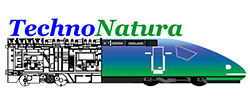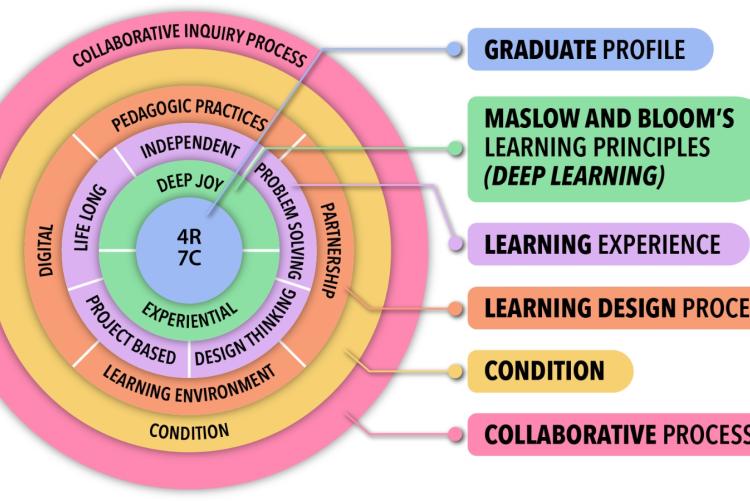The rapid advancements in technology, especially in the fields of artificial intelligence, machine learning, and digital tools, have drastically transformed how we think about education. In this context, innovative teaching methods are becoming essential in preparing students for the challenges of the future. Among these approaches, Michael Fullan’s concept of Deep Learning and the integration of STEAM education at institutions like Madrasah TechnoNatura represent a forward-thinking approach to pedagogy. Both paradigms emphasize the need for a more holistic, interconnected, and student-centered form of learning, focusing on deep understanding, creativity, and real-world application.
In this article, we explore Michael Fullan’s framework of Deep Learning and how it complements the STEAM education model employed at Madrasah TechnoNatura. By examining both approaches, we will see how they work in tandem to shape an education system that prepares students not only for academic success but also for the complex, rapidly evolving world of the 21st century.
The Concept of Deep Learning by Michael Fullan
Michael Fullan, an internationally recognized educational theorist and author, introduced the concept of Deep Learning as part of his New Pedagogies for Deep Learning (NPDL) framework. Fullan’s work focuses on transforming the education system to better align with the needs of the modern world. He argues that traditional education methods, which often emphasize rote memorization and surface-level knowledge acquisition, are insufficient for preparing students for the challenges and opportunities of the future.
In Fullan’s vision, Deep Learning is characterized by a focus on deep understanding rather than superficial knowledge. This requires not only teaching students facts and information but also engaging them in complex, real-world problems that require critical thinking, collaboration, and creative problem-solving. The ultimate goal of Deep Learning is to cultivate a set of competencies and skills that will allow students to thrive in an increasingly interconnected and technology-driven world.
Fullan’s framework identifies six critical competencies, known as the 6Cs, which are the cornerstone of deep learning:
-
Character – Developing strong ethical values and a sense of responsibility towards others.
-
Citizenship – Fostering the ability to engage in meaningful social and environmental causes.
-
Collaboration – Building teamwork and interpersonal skills that promote effective group work and collective problem-solving.
-
Communication – Enhancing the ability to express ideas clearly and persuasively in various forms and contexts.
-
Creativity – Encouraging innovation and original thinking in solving complex problems.
-
Critical Thinking – Promoting the ability to analyze, evaluate, and synthesize information to make informed decisions.
These competencies, Fullan argues, are essential for students to succeed in the future, as they not only prepare individuals for the job market but also for life as informed, ethical, and proactive global citizens.
Fullan’s Deep Learning framework places a strong emphasis on active learning, student agency, and technology integration. He believes that education should go beyond simply imparting knowledge; it should foster the development of skills that enable students to apply their learning in real-world contexts. Fullan advocates for project-based learning, inquiry-based learning, and other pedagogical methods that promote active, student-centered learning. Moreover, he believes that the integration of technology in education can serve as a powerful accelerator for deep learning, allowing students to access vast resources, collaborate across borders, and engage with complex issues.
The Role of STEAM Education in the 21st Century
The integration of STEAM—Science, Technology, Engineering, Arts, and Mathematics—into education is becoming increasingly important as we transition into the Fourth Industrial Revolution. STEAM education is seen as an approach that fosters interdisciplinary learning and emphasizes the importance of both technical skills and creative thinking. While STEM (Science, Technology, Engineering, Mathematics) education has been a dominant focus in recent years, the inclusion of the arts is vital for nurturing creativity, innovation, and problem-solving.
STEAM education encourages students to explore the connections between different disciplines, bridging the gap between the technical and creative fields. It helps students understand how art and design are integral to the development of technology and innovation. For example, understanding the aesthetic aspects of technology is critical in designing user-friendly apps, websites, or even robots. In this sense, STEAM education is about creating well-rounded individuals who can approach problems from multiple perspectives, think critically, and come up with innovative solutions.
The STEAM approach also emphasizes project-based learning, where students work on real-world challenges and collaborate across disciplines. This experiential learning process allows students to gain practical skills while also honing their critical thinking, creativity, and collaboration abilities. Through STEAM education, students are encouraged to ask questions, test hypotheses, make mistakes, and learn from them—processes that are essential in both the arts and the sciences.
STEAM Education at Madrasah TechnoNatura
Madrasah TechnoNatura, located in Indonesia, is a perfect example of an educational institution that effectively integrates STEAM education with a strong ethical and moral foundation. The school’s mission is to prepare students for the future by providing a curriculum that combines modern scientific and technological education with Islamic values. TechnoNatura takes a unique approach by aligning STEAM with the principles of Islam, allowing students to develop not only their academic skills but also their character and sense of responsibility to society.
The school emphasizes project-based learning, allowing students to engage in hands-on projects that require them to apply their knowledge and skills in real-world situations. These projects often involve the use of advanced technology, such as robotics, coding, and the Internet of Things (IoT), but also encourage students to consider ethical, environmental, and social issues in their work. For instance, students might design a smart home system that uses renewable energy sources, or they might develop an app that helps reduce food waste in their community.
In addition to technological skills, Madrasah TechnoNatura places a strong emphasis on collaboration and creativity. Students are encouraged to work in teams, exchange ideas, and build on each other’s strengths. This collaborative environment mirrors the real-world workplace, where teamwork and innovation are key to success. Furthermore, by integrating the arts into their projects, students learn to think creatively and approach problems from multiple perspectives. This interdisciplinary approach not only enhances their technical skills but also nurtures their creativity, critical thinking, and communication abilities.
Through this combination of deep learning and STEAM education, Madrasah TechnoNatura is preparing its students to be leaders in their communities and global citizens. The school believes that education should not only equip students with technical skills but also foster their personal and ethical development, so they can contribute positively to society and the world at large.
Synergy Between Deep Learning and STEAM Education
The integration of Michael Fullan’s Deep Learning framework with STEAM education at Madrasah TechnoNatura creates a powerful synergy. Both approaches focus on fostering critical thinking, creativity, and collaboration, and together, they provide a holistic educational experience that goes beyond the classroom.
Deep Learning encourages students to engage deeply with content, develop essential life skills, and solve complex problems. Meanwhile, STEAM education provides the tools, knowledge, and practical experience necessary to tackle real-world challenges. Together, they empower students to not only understand theoretical concepts but also to apply their learning in meaningful ways.
By combining these two approaches, Madrasah TechnoNatura ensures that students are not only equipped with technical and academic knowledge but also with the 6Cs (Character, Citizenship, Collaboration, Communication, Creativity, and Critical Thinking) necessary to navigate the complexities of the modern world. This comprehensive approach prepares students for both personal and professional success, ensuring they are capable of contributing positively to their communities and the world at large.
Conclusion: A Vision for the Future of Education
As we look to the future, it is clear that education must evolve to meet the demands of an increasingly complex and interconnected world. Michael Fullan’s Deep Learning framework and the STEAM approach at Madrasah TechnoNatura represent two of the most forward-thinking educational paradigms, both of which emphasize the importance of creativity, critical thinking, collaboration, and real-world application.
By integrating Deep Learning with STEAM education, Madrasah TechnoNatura is helping to cultivate a new generation of learners who are not only skilled in technology and the sciences but also compassionate, ethical, and capable of addressing the challenges of the future. This holistic approach to education is essential in preparing students for a world that values innovation, collaboration, and a deep understanding of the interconnectedness of the world around us.
In the coming years, we can expect that the principles of Deep Learning and STEAM will become even more widespread, influencing schools and educational institutions around the world. As more schools adopt these approaches, the hope is that we will see a shift toward a more inclusive, creative, and meaningful form of education—one that not only prepares students for the future but also empowers them to shape it.
- Log in to post comments

